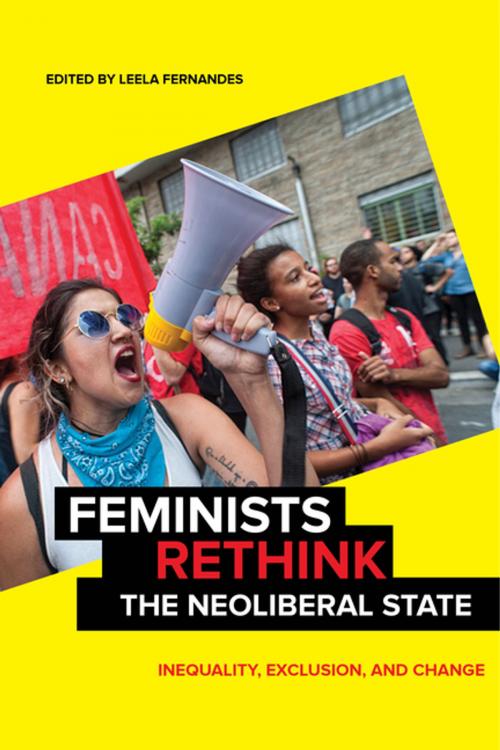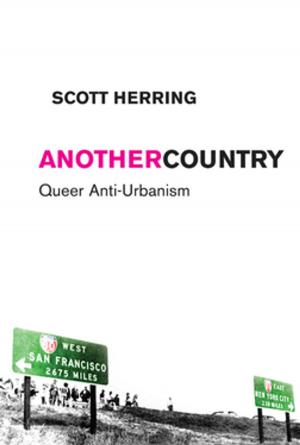Feminists Rethink the Neoliberal State
Inequality, Exclusion, and Change
Nonfiction, Social & Cultural Studies, Political Science, Politics, History & Theory, Social Science, Gender Studies| Author: | ISBN: | 9781479813100 | |
| Publisher: | NYU Press | Publication: | January 23, 2018 |
| Imprint: | NYU Press | Language: | English |
| Author: | |
| ISBN: | 9781479813100 |
| Publisher: | NYU Press |
| Publication: | January 23, 2018 |
| Imprint: | NYU Press |
| Language: | English |
A rich set of feminist perspectives on the varied and often contradictory nature of state practices, structures, and ideologies
Growing socio-economic inequality and exclusion are defining features of the twenty-first century. While debates on globalization, free trade, and economic development have been linked to the paradigm of “neo-liberalism,” it does not explain all the forms of social change that have been unfolding in comparative contexts.
Feminists Rethink the Neoliberal State provides a timely intervention into discussions about the boundaries, practices, and nature of the post-liberalization state, suggesting that an understanding of economic policies, the corresponding rise of socio-economic inequality, and the possibilities for change requires an in-depth reconceptualization.
Drawing on original field research both globally and within the United States, this volume brings together a rich set of perspectives on the varied and often contradictory nature of state practices, structures and ideologies in the post-liberalization era. The essays develop an interdisciplinary approach that treats an understanding of historically-specific forms of inequality—such as gender, race, caste, sexuality and class—as integral to, rather than as after-effects of, the policies and ideologies associated with the “neoliberal project.”
The volume also tackles central questions on the restructuring of the state, the state’s power operations, the relationship between capital and the state, and its interactions with the institutions and organizational forms of civil society in the post-liberalization era. As such, Feminists Rethink the Neoliberal State examines both what is distinctive about this post-liberalization state and what must be contextualized as long-standing features of modern state power.
A truly international and interdisciplinary volume, Feminists Rethink the Neoliberal State deepens our understanding of how policies of economic liberalization shape and produce various forms of inequality.
A rich set of feminist perspectives on the varied and often contradictory nature of state practices, structures, and ideologies
Growing socio-economic inequality and exclusion are defining features of the twenty-first century. While debates on globalization, free trade, and economic development have been linked to the paradigm of “neo-liberalism,” it does not explain all the forms of social change that have been unfolding in comparative contexts.
Feminists Rethink the Neoliberal State provides a timely intervention into discussions about the boundaries, practices, and nature of the post-liberalization state, suggesting that an understanding of economic policies, the corresponding rise of socio-economic inequality, and the possibilities for change requires an in-depth reconceptualization.
Drawing on original field research both globally and within the United States, this volume brings together a rich set of perspectives on the varied and often contradictory nature of state practices, structures and ideologies in the post-liberalization era. The essays develop an interdisciplinary approach that treats an understanding of historically-specific forms of inequality—such as gender, race, caste, sexuality and class—as integral to, rather than as after-effects of, the policies and ideologies associated with the “neoliberal project.”
The volume also tackles central questions on the restructuring of the state, the state’s power operations, the relationship between capital and the state, and its interactions with the institutions and organizational forms of civil society in the post-liberalization era. As such, Feminists Rethink the Neoliberal State examines both what is distinctive about this post-liberalization state and what must be contextualized as long-standing features of modern state power.
A truly international and interdisciplinary volume, Feminists Rethink the Neoliberal State deepens our understanding of how policies of economic liberalization shape and produce various forms of inequality.















